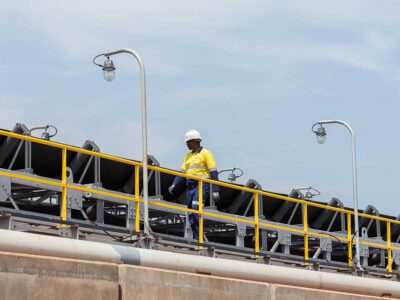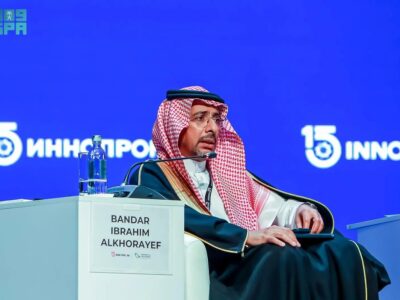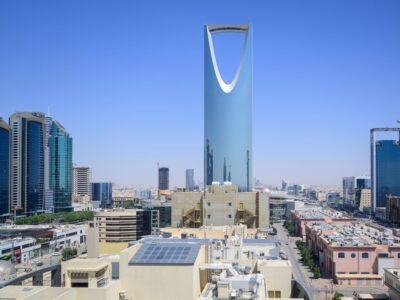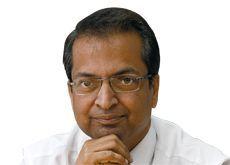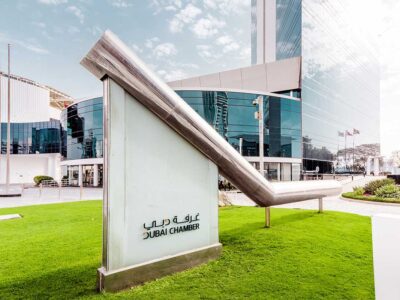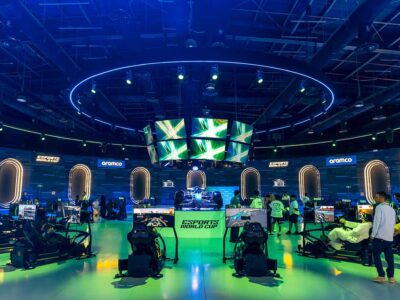MEP Middle East speaks to Honeywell Electrical Devices and Systems GM Dilip Sinha about the company’s long history in the region, and its outlook for the future.Sinha, who is an electrical engineer as well as holding an MBA, has been in the region for about 25 years, ranging from Dubai to Saudi Arabia and Oman. “I started with the power industry – generation, transmission and distribution.
I was involved in that industry in the Middle East for almost five to seven years. Then I moved into controls and automation, which had more to do with oil and gas, the biggest sector in the region. Then a little over nine years back I moved to Honeywell; my direct involvement in the business which I lead in the region is construction. So if you look at it, I have been involved in all three key areas in the region – power, oil and gas and construction.”
This scope of service has given Sinha a unique perspective on the evolution of the region: “I have seen the boom of the early 1980s, the oil-price crash in 1986 and 1987 and its impact on the region. I have seen the bust of the 1990s, the Gulf War, the slowdown for the next seven to eight years actually, and the subsequent boom, particularly in Dubai, followed by the impact of the most recent economic downturn.”
So how does the current downturn compare? Is this the worst it has ever been? Sinha says that, while the rest of the region escaped relatively unscathed, the biggest impact was on Dubai due to its phenomenal growth in the past decade. “Dubai is dependent upon trade and business, and not so much on oil, and thus the impact was felt more keenly here. But having said that, if you look back at the last seven to eight years and what Dubai has created, because I have experienced the entire region over many years, it has created a world-class infrastructure.
“It is a great business hub, and has always been. It is a great place for most of the multinationals to not only be based here, but to expand their operations regionally. There are other parts of the region with a lot of activity and potential, but in terms of infrastructure, Dubai really stands head and shoulders above the rest. The way I look at it is that while a lot of people have written Dubai off, in the coming years it is going to play a major role, not just in the region, but in the world.
Business ease
“The ease with which you can do business here is more pronounced than any other place I have come across, combined with the easy tax laws and the good quality of life to be had with families. As soon as the storm clouds of the current economic crisis start to dissipate, Dubai’s role from a global standpoint will become increasingly important.” Sinha argues that the so-called total collapse of the construction industry in Dubai is only a short- to medium-term setback. “Even now infrastructure is a key focus. If you look at power generation, water, wastewater and transportation, phenomenal amounts of money are being spent.”
Sinha explains that Honeywell has been in the region for over 30 years, spanning sectors as diverse as building automation, oil and gas, process controls, aerospace, petchem, security and fire alarm systems.
“Honeywell is structured in different businesses. The business I represent is Electrical Devices and Systems, and the brand it represents within Honeywell is called MK. For over 90 years, MK has been the world leader in the construction industry in providing some of the safest and highest-quality electrical switches and cable management products.
“We have also been involved with many of the British Standards that have been established, and have been responsible for such global firsts as the 13 A three-pin switch socket, an MK invention. Most importantly for the region, MK as a brand has been there for about 50 years – longer than some of the countries there have been in existence.
“The brand is held with high regard and much passion across the entire region. Customers hold it very close to their hearts. In most of the countries where we are represented, if not all, we either have a leading position or are among the top two.”
How important is the Middle East market to Honeywell’s global business? Sinha says the company began investing heavily in the region almost a decade ago in terms of setting up operations, staff and engineering and training resources. “So we have really invested a lot. The way Honeywell looks at the Middle East is that it perceives it as being one of the areas with the greatest future potential, along with Asia Pacifica, South East Asia and India. That is why Honeywell has such a lot of confidence in anticipated future growth in the region.”
Major driver
Sinha says a major driver of business at the moment is sustainability. “We are paying a lot of attention to energy-saving. This is making a big contribution to growth, and will play an even bigger role in the future.” Honeywell has always been very proactive in this regard, and about two years ago launched a range of commercial lighting products that save 30% to 35% of the total energy consumption of an average commercial building.
“The range is very easy to install, can be used for retrofit or new projects, and has smart sensing built in. Such products are picking up very well, even in regions like the Middle East where the energy cost is very low. These products offer major savings at minimal cost, with payback periods from two to three years.”
Highlighting future growth areas, Sinha says health and education “are two of the biggest emerging markets in the region.” The company has launched an anti-bacterial switching and PVC trunking system aimed specifically at the healthcare sector, which is an example of its close collaboration with consultants and designers. “We have design teams to solve problems and give advice on applications and correct use, for example. We do not just leave the customer alone with the product to sort it out by themselves.”
The bulk of Honeywell’s products are manufactured in the company’s state-of-the-art, highly-automated plant in Essex in the UK. “This is our biggest manufacturing facility in the world. However, being global, we do have manufacturing facilities in India and Asia Pacific as well, for manufacturing country-specific products, because some of the regional stan-dards do differ.”
Commenting on the company’s strategy for the immediate future: “If you look at the region itself in terms of the economy, yes Dubai is down, and it will take time for it to bounce back. The strategy we have adopted is that over the last few years we have been investing in other countries in the region like Saudi Arabia, Qatar, Abu Dhabi and also Bahrain, Libya, Egypt and Jordan. All these countries are giving us real-time growth. Growth in 2010
“We foresee a lot of growth in 2010. A lot of people are complaining it is going to be worse, but we see growth across the region. Overall we are going to come out good. We are investing in quite a lot of new product launches for the region over the next two to three years. These are all at the design stage, which reflects our confidence in the region,” says Sinha.
“We are also looking at expanding our wiring accessories ranges. We have been market leader in the premium sector, have expanded into the mid segment, and are also entering the mass market with a quality product. We are also looking at investing in new technology, particularly in modular-type home automation. The combination of our industrial knowledge and technological leadership will help us penetrate such markets.”
Training is a key element of this strategy. “Again the training is focusing a lot on sustainability and green products. Sometimes with simple things like switches people think there is no training required, as it is a simple on and off device. But what they do not know is that if such a product is not selected carefully, and is not used properly, it could be the most dangerous product in your building.” Quality is therefore the mantra of the MK brand. “All our processes and systems take environmental, health and safety and quality aspects into account.
“In the construction industry in particular, you have the contractor, developer, consultant, interior designer and architect. These are the key people involved. What we have done is create a design team of engineers that goes out helping the consultants with specifications, giving design solutions and doing all the necessary calibrations, for example. They do go out and really assist customers, as opposed to just selling the products.
“A novelty for the industry is we also have a design team, here in the Middle East and in the UK, concentrating on interior design. While the technical aspect is important, the interior aesthetics are as well. We therefore produce products and assist with the type of design that is required as per the theme of a particular project. That is a unique feature. Not many companies are able to do that, and we are able to do it on a fast-track basis as well, concludes Sinha.”
